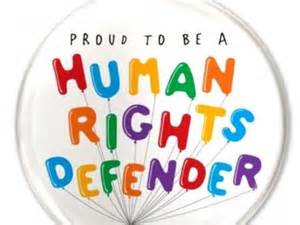A consultation organised by the Human Rights Commission of Pakistan (HRCP) here on Thursday concluded with an 11-point charter of demands calling upon the government to ensure safety and protection for human rights defenders and to facilitate their work.
The consultation, attended by a large number of civil society representatives, began with a one-minute silence to remember the human rights defenders killed across Pakistan. The consultation included sessions on understanding HRDs’ role, challenges and work environment for the defenders; actors hindering and supporting defenders’ work; commitment among political parties and CSOs to protect defenders; and brainstorming for solutions to address threats, hurdles to work and impunity for the perpetrators of violence against them. The sessions were chaired by Nasreen Azhar, Zafarullah Khan, Tahira Abdullah, Naseer Memon and Dr Farzana Bari.
The consultation titled ‘Towards greater protection for Human Rights Defenders’ was held on the death anniversary of HRCP coordinator Rashid Rehman, who was murdered in Multan on May 7, 2014. The consultation concluded with the adoption of the following charter of demands.
“We, the participants of the consultation “Towards greater protection of Human Rights Defenders” organised by HRCP demand that the following measures must be taken to ensure the safety and protection of human rights defenders, for enhancing an understanding of their role and for facilitating their work:
- The state should recognize the dangers and grave security challenges that human rights defenders face in all parts of Pakistan on account of their work from both state and non-state actors. It must take meaningful steps in consultation with the civil society under its Constitutional and international obligation to protect human rights defenders and to ensure their security and safety.
- An effective legislative framework and safety protocols must be put in place to safeguard the lives and work of all human rights defenders. Towards that goal, the government should be guided by the United Nations Declaration on Human Rights Defenders (1998) and the recommendations that it received from other countries which were accepted by the government of Pakistan in its Universal Periodic Review at the UNHRC in 2012.
- Registration of cases against human rights activists on account of their work, especially on charges of sedition as has been noticed in Gilgit-Baltistan in recent months, is a disturbing development. Such intimidation and violence has further aggravated the work environment for defenders. Lodging of such cases against rights defenders must cease immediately and the cases already lodged must be withdrawn.
- It is imperative that the state ensures—as per its obligation under the Constitution and numerous international human rights treaties—due process of law for all citizens. Thorough, prompt and impartial probes must be conducted into arbitrary and illegal detentions, enforced disappearances, and other threats and attacks against human rights defenders.
- The continued impunity for almost all perpetrators of violence, both state or non-state actors, against human rights defenders plays a significant role in the pervasive and growing intimidation, violence and threats of violence directed against the defenders. The authorities must confront, investigate and prosecute threats and violence against rights defenders on priority basis. Appropriate resolve and commitment in pursuing that objective would also serve as a deterrent to targeting of rights defenders.
- Human rights defenders must not be prevented from accessing information and should have complete freedom of expression and freedom of movement, including the right to move freely in any part of the country and to leave and return to Pakistan. The practice of placing arbitrarily and without due process the names of human rights defenders on the Exit Control List (ECL) must be discontinued forthwith.
- Freedom of information is a fundamental human right that is essential not only for rights defenders’ work but also for holding the government accountable, ensuring transparency and indeed for availing a range of human rights. All policies and practices that hamper the freedom to seek, receive and impart information and ideas through any medium must be ended.
- While the civil society deeply respects and has a very firm stand on the freedom of expression, it must call upon professional media organisations for self-regulation to ensure that the media is not used to incite violence and hatred against human rights defenders and also does not trivialize the civil society organisations and rights defenders. Propaganda via the social media that demonizes human rights defenders and civil society must be checked.
- There is an urgent need to enhance awareness and understanding of the significant role that human rights defenders play in society and why it is important to protect, preserve and facilitate that role. It is particularly vital to train members of the police force and the security forces on how to treat rights defenders and to facilitate their work. They must also be coached on how to assist and respond to the safety challenges facing any rights defender.
- It is vital that civil society organisations join hands to serve as watchdog proactively, drawing attention to address the safety needs of rights defenders and to draw attention to and call for removal of impediments in their work. The civil society needs to close its ranks and focus on their allies, adversaries and fence-sitters.
- In the event of the state failing to perform its primary obligation to protect the right to lives for human rights defenders, the authorities must fulfuil their additional additional obligation to support the families of the slain human rights defenders. Civil society organisations should also evolve support mechanisms to assist the families and enable them to pursue the cases to get justice.”
Zohra Yusuf is the Chairperson of the Human Rights Commission of Pakistan
 Log in
Log in









